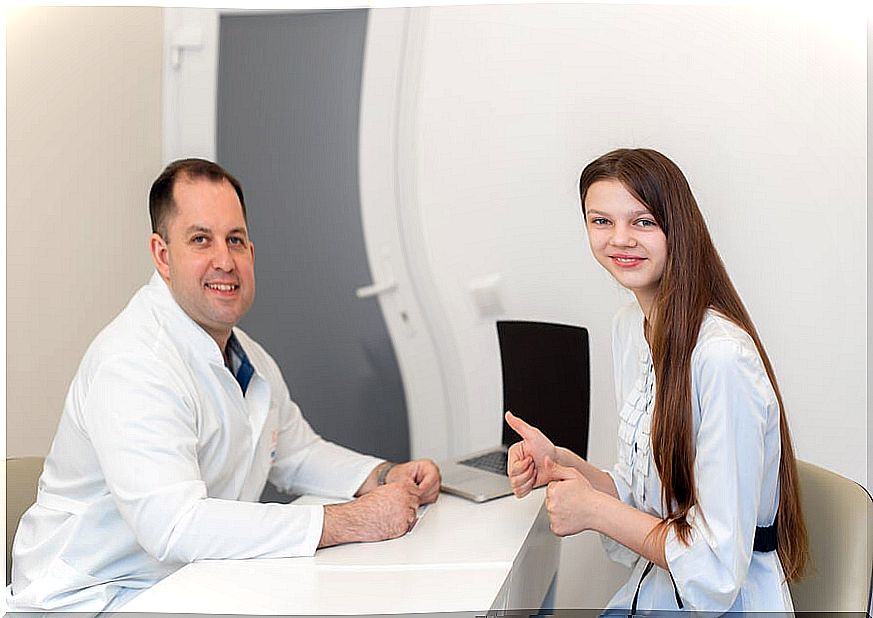Reasons For Frequent Consultation In Adolescence
The identification of reasons for frequent consultation in adolescence constitutes an essential step in the formulation of public policies aimed at this group of the population. Knowing the ailments they suffer, as well as the determining factors that cause them, should be a goal of researchers in this area.
Reasons for frequent consultation in adolescence
According to a publication made by a group of researchers from the General Hospital Dr. Manuel Gea González, Mexico DF:
Beyond the particularities offered by the different contexts, medical consultations in adolescence in its initial stages (10-14 years) are related to pubertal development, abdominal pain, headaches or headaches. Acne is not always a reason for consultation and is often naturalized as part of adolescent life.
Emotional factors play an important role and are often not a frequent reason for consultation; however, experienced professionals can identify mood alterations quickly, even when it was not an overt but a hidden query. The challenge then is to make visible those expressions or discomforts that for different reasons lie hidden or hidden.

Truths about consultations in adolescents
It is often argued that adolescents are a healthy general population that attends the health professional for minor reasons, or for health checks related to the request for a physical fitness.
These consultations are welcome, since they allow adolescents to be linked at least once a year with the health system. Likewise, knowing your immune status and the need for new vaccines represents another important element.
Even so, adolescent health is associated with eating disorders, trauma, violence and, in recent times, suicide. The latter is particularly striking, as the numbers have been increasing.
Beliefs and perceptions about health in adolescence
It is difficult to eradicate some beliefs that – strongly ingrained – shape the image that adolescents have both for some people and for the community in general.
From myths related to sex and rock and roll, to the conceptualization of adolescence as the “divine youth treasure”, the truth is that in general adolescents are in good health and particularly commit to their projects (when there are any), as well as with ideals and purposes.
Returning to the subject of the reasons for frequent consultation in adolescence, it is important to monitor the development of a healthy sexuality and permanently review the practices of health professionals to remove all kinds of prejudices in this regard.
Unintentional Pregnancy in Adolescence: A Cause for Concern?
Unintentional pregnancy in adolescence is a cause for concern. Consequently, the Ministry of Education of Argentina, through the National Program for Comprehensive Sexual Education (ESI) has implemented a specific project.
Its objective is to work on the reduction of unintentional pregnancy in adolescence and the fulfillment of sexual and reproductive rights that are part of the ESI curricular guidelines. According to data from the same program:

Additional questions
There are several questions that arise when we think about teenage pregnancy. Thus, in the material of the ministry of education to which we referred, the authors highlight and pose a series of questions:
- What is the best way to accompany?
- What different things do we have to do or how should we work on the issue to contribute from school to avoid unintended, unintended pregnancies?
- What are we teaching at school to contribute to this purpose?
- Do we teach about contraceptive methods (MAC)?
- Do we talk enough to boys and girls? Do we listen to their doubts, fears, glances?
- Do we create a space for genuine dialogue with them? What are the social representations in relation to teenage pregnancy?
- What is the regulatory framework that covers this issue? “
In summary
In adolescents – a population that is generally in good health – many of the alterations in health are related to behaviors.
Talking early about these issues in order to promote health represents an important way to prevent such dreaded scenarios as depression, suicide, and violence.









